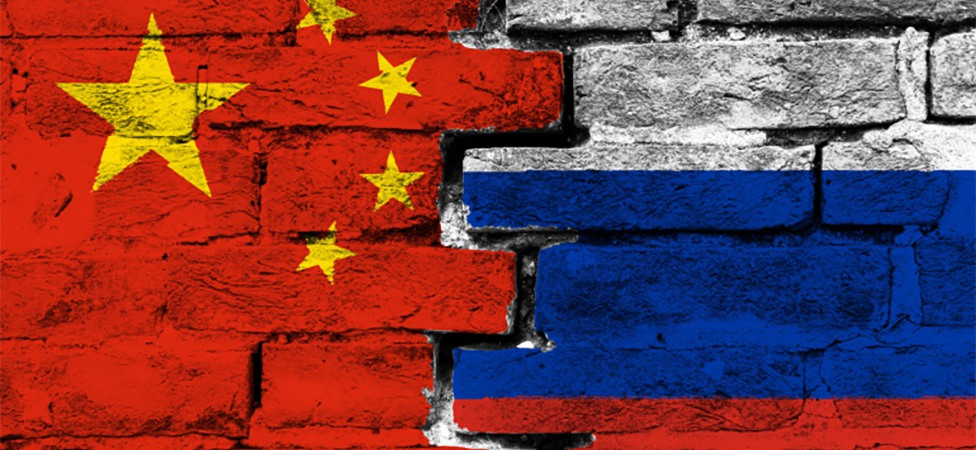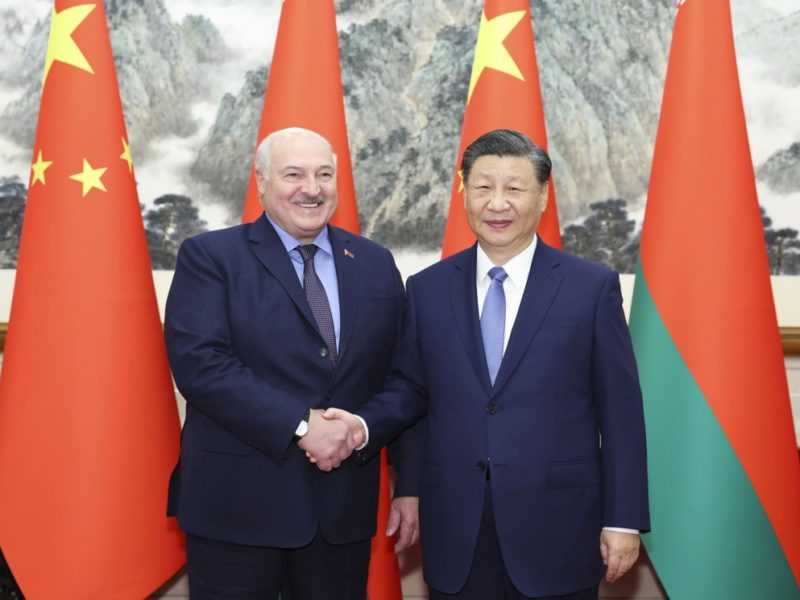On March 20, 2023, Chinese President Xi Jinping embarked on his first visit to Russia since the beginning of the Ukraine war. The three-day visit conveyed significant signals to the international community and highlighted the burgeoning partnership between the two powers.
As the war in Ukraine persists, China has found itself balancing multiple objectives. On the one hand, it calls for an end to the hostilities, but on the other hand, it maintains a strong strategic partnership with Russia. Despite the ongoing war, trade between Beijing and Moscow continues to grow, and Chinese and Russian diplomats remain in frequent contact. Even military exercises between the two nations continue without interruption. While Chinese state media does not often directly endorse Russia’s territorial claims in Ukraine, it consistently blames NATO and the United States for the conflict. Prior to their recent meeting, Chinese President Xi Jinping and Russian President Vladimir Putin had already met more than 40 times, cementing their bond as fellow autocrats who speak the language of power.
Here are some key takeaways from the meeting:
The meeting took place amidst some crucial international developments: the Japanese Prime Minister’s surprise visit to Kyiv, the International Criminal Court’s arrest warrant issued for Vladimir Putin, and the U.S. warning China not to back Russia in the Ukraine war.
The warm meeting between the two leaders that took place despite these implications is a message in and of itself.
The Ukraine War
Perhaps unsurprisingly, the meeting hadn’t resulted in any progress toward resolving the war in Ukraine. Both sides emphasized the importance of decreasing tensions and not “prolonging the war in Ukraine”. However, the fact that Russia’s invasion was the initial cause of the war was not acknowledged. Both countries have refused to call the Russian invasion “war”, instead calling on NATO to “respect the sovereignty” of other states.
The leaders also referenced the controversial 12-point peace proposal presented by the PRC last month that was supposed to deal with the ongoing war in Ukraine. The Chinese attempt to become the main negotiator in the conflict was criticized by the West, as it did not suggest Russia withdraw its forces. However, during the meeting, Putin stated that “he viewed China’s proposals for a resolution of the Ukraine conflict with respect.” On the other hand, Xi Jinping once again pointed out Beijing’s “neutral position” on the war in Ukraine and called for dialogue.
Economic and Energy Cooperation
Besides the clear political support, the visit also served as a clear reaffirmation of close economic ties between China and Russia. Both leaders mentioned that they “will build a closer energy partnership, supporting companies from both countries in advancing cooperation projects in oil, gas, coal, electricity and nuclear energy.” According to Putin, Russia welcomes Chinese businesses to replace the western companies that have left the country since the start of the war in Ukraine.
In the media statement, Putin mentioned that the possibility of expanding Russian gas exports to China was discussed, along with the potential development of the Power of Siberia 2 gas pipeline through Mongolia. While Putin highlighted the pipeline as a replacement for the defunct Nord Stream 2 line delivering gas to Europe, Xi did not explicitly mention it during the briefing.
– The Power of Siberia, a cross-border pipeline carrying natural gas from Russia, was officially launched on December 2, 2019. It runs for 3,000 km through Siberia and extends through China’s eastern side, including the capital, to Shanghai. The final section is scheduled to commence delivering gas in 2025. Despite Russia’s $55 billion investment in the pipeline, only $3.81 billion worth of natural gas imports have been made through the pipeline since December 2019. Gas supply from the Power of Siberia 1 pipeline reached 10.4 billion cubic meters (bcm) in 2021 and 15 bcm in 2022. For 2023, volumes are expected to reach 22 bcm. The second pipeline – The Power of Siberia 2 – could double gas exports from Russia to China, crossing through Mongolia and into the industrial regions near Beijing. Russia will deliver at least 98 bcm of gas to the PRC by 2030. The importance of the pipeline is growing as Moscow is looking for a way to replace European countries as its major gas importer – Moscow wants Power of Siberia 2 to replace the Nord Stream 2 pipeline (For comparison, the Nords Stream 2 pipeline was expected to deliver 5.6 bcm of Russian gas to Europe). However, according to experts, China will not need additional gas supply until 2030.
Cooperation in the energy sector has also been a crucial part of Sino-Russian relations after the war. As Europe has been taking steps to cut down its reliance on Moscow’s energy, China’s share of Russian energy exports has been growing astonishingly – Beijing’s spending on Russian crude oil, coal, and natural gas, shot up to $88 billion in the year through February, compared to $57 billion in the previous 12 months. However, Russia’s gas exports to the PRC are still a tiny fraction of the record 177 bcm it delivered to Europe in 2018-19.
It is worth mentioning that after the Western economic sanctions on Russia, it has been becoming increasingly dependent on growing economic relations with Beijing – trade between the countries has grown by nearly 20 percent this year, up from $190 billion in 2022.
Military
During the meeting, Moscow and Beijing committed to strengthening their military exchanges and cooperation while also conducting joint maritime and aerial patrols. Additionally, they expressed concerns about NATO’s growing military-security ties with Asia-Pacific countries and opposed external military forces undermining regional peace and stability. Ever since the start of the war in Ukraine, both nations have been actively participating in joint drills around the world. According to the joint statement, the partnership between the two countries had reached its highest level ever. However, the statement clarified that this partnership was not a military-political alliance and was not directed against any other country. It emphasized that the relationship between Russia and the PRC was not confrontational and not aimed at any third country, and it did not constitute a bloc.
“New Era of Cooperation”
During their talks at the Kremlin, Chinese President Xi Jinping and Russian President Vladimir Putin signed a series of documents regarding “strategic cooperation” between their countries. Putin termed the talks as “successful and constructive.” According to Xi, one of the agreements he signed with Putin has ushered the relationship between the two countries into a “new era” of cooperation.
At the end of the state dinner on Tuesday evening, the Russian leader walked Xi Jinping out – there, in front of the cameras, Xi reiterated his belief that global power dynamics are changing. “Together, we should push forward these changes that have not happened for 100 years. Take care” – were the farewell words of the Chinese leader.
International Response
According to Washington, Xi’s visit suggested that Beijing was providing “diplomatic cover” to Moscow to commit more crimes, given the timing of the visit. The White House spokesperson John Kirby said that there are concerns that China might once again call for a ceasefire that permits Russian forces to remain in Ukrainian sovereign territory, allowing them to consolidate their positions and reignite the war when it is more advantageous for them. Although the PRC has attempted to remain neutral in the Ukraine conflict, the United States has suggested that China’s actions could be a “stalling tactic” to assist Moscow. Washington has accused Beijing of contemplating arms exports to Moscow, a claim that the PRC has vehemently refuted. China has strongly denied the US’s allegations that it is contemplating exporting weapons to Moscow.
Conclusion
In conclusion, Chinese President Xi Jinping’s visit to Russia has clearly shown his support for Vladimir Putin and the strengthening partnership between the two countries. The meeting highlighted close economic ties and cooperation in the energy and military sectors, as well as shared concerns over NATO’s growing military-security relations with the Asia-Pacific region. The invitation extended by Xi to the Russian Prime Minister during the visit is also indicative of the deepening cooperation between the two nations.
The fact that the meeting took place against the backdrop of the ongoing Ukraine war further showcases that the PRC’s support towards Ukraine and its territorial integrity is a bluff. On the other hand, The Kremlin’s charm offensive with China is a testament to Russia’s growing isolation from the West and the need to bolster relations with its strategic partner. Finally, this meeting can also be perceived as a clear challenge to the West – China is “flexing its muscles” as it indicates that it can ignore the decisions of the international community and the only way of dealing with Russia actually goes through Beijing.

Nutsa Dzandzava – Author of the Blog, Intern, Civic IDEA




